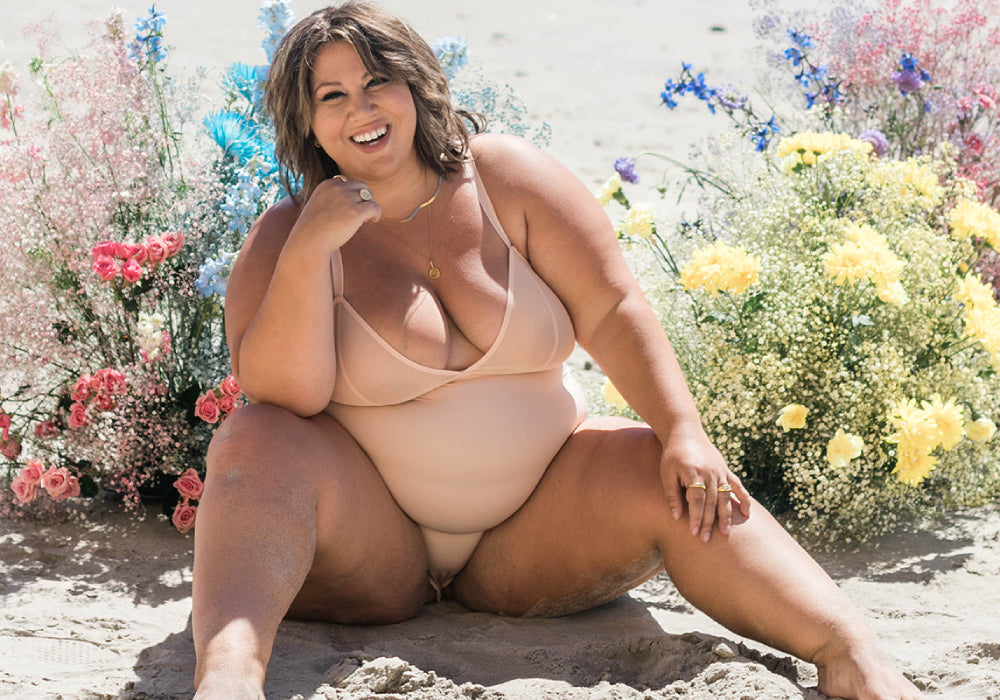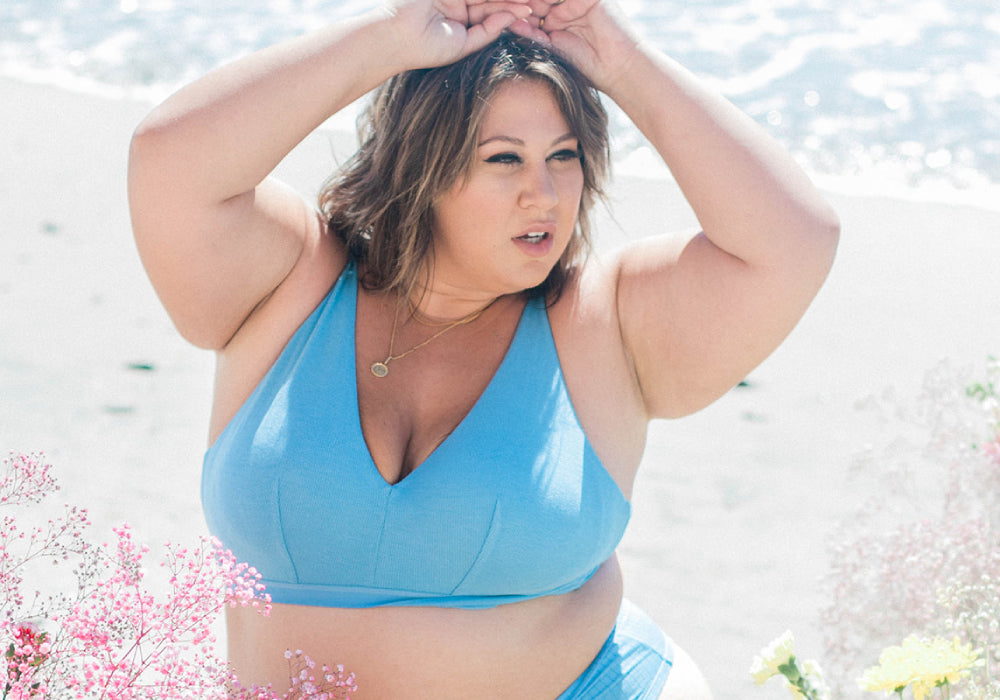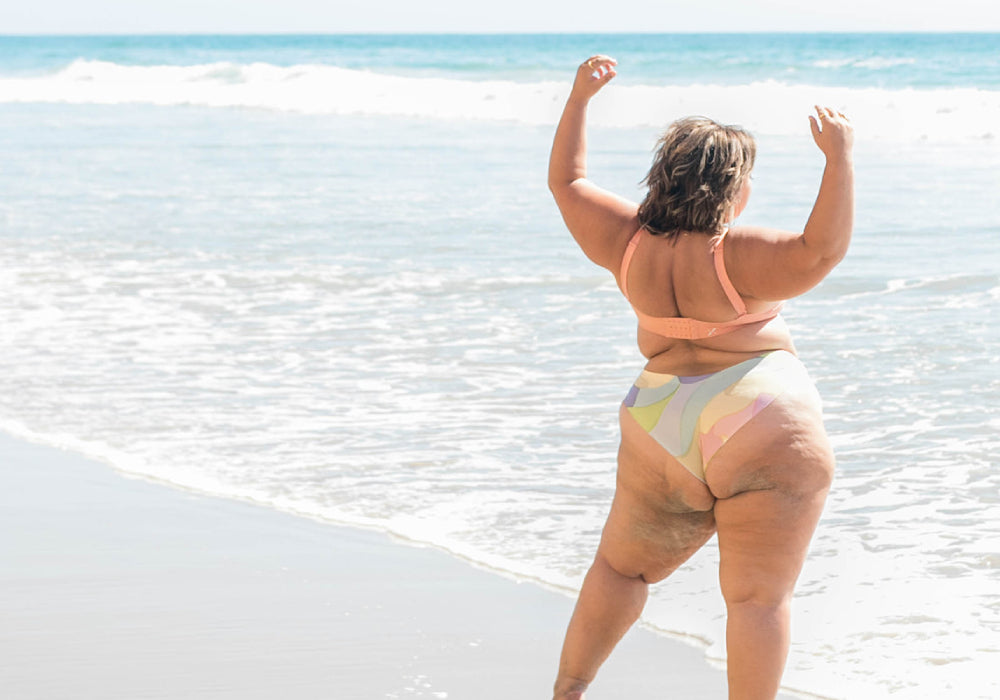Body Positive Influencer Kayla Logan: Your Queer Identity Doesn't Hinge on Your Appearance

I grew up in a home that praised thinness and condemned fatness. Diet culture was strongly embedded in my family. As young as 11-years-old I was trying diets and, as I got older, I struggled with eating disorders like bulimia and anorexia.
My last tango with diet culture was 4 years ago. It was at this time I came up with the Perfectly Imperfect Campaign. The goal was to show people their bodies are beautiful and worthy regardless of their shape or size. People from around the world posed at iconic locations in their skivvies. The beautiful images were shared and celebrated on social media.
Launching this campaign was the beginning of my self-love and body positivity journey. It was in my most vulnerable state that I became my most empowered self; I came to love, accept, and heal myself.
With this new found self-love and self-acceptance, I felt I was finally coming into my truth and living my authentic life. I started to love myself enough to have the courage to try new things and, through those experiences, I learned more about myself and who I am. This ultimately helped me come to terms with my sexuality — I was free to let myself be exactly the way I am.
Finding the body positivity community and being on social media has been transformational. The body positivity movement was founded by queer, fat femmes, and it’s allowed me to meet more queer people, find community, and have a safe space to talk about my sexuality and queerness.
Last year, I started to openly question my sexuality. I reached out to a fellow queer, body positive influencer and asked: “How do you know if you’re gay?” Their simple response was, “If you think you might be gay, you probably are.” I wish someone had given me this advice when I was younger.
TikTok was the final push for me to come out. During the lockdown, I ended up on the magical “Lesbian TikTok” side of the app. I had never seen so much lesbian representation. Finally, all those thoughts I’d suppressed around wanting to be with women were unlocked.
I came out at the age of 32. Growing up I never knew being gay was an option. There was so much shame, internalized homophobia, and outward homophobia in my home that it didn’t feel safe to even come out to myself.
There was also a lot of fear that if I did come out, or if I was gay, that my family and online community would reject and abandon me, and I would have no one. That wasn’t a risk I was willing to take.
My first Pride was everything I hoped it would be. I felt so much love and happiness rooted in finally being myself. Last year, I had a partner and got to celebrate Pride with them — and at a drag show no less.
The space was filled with joy, a sense of belonging, and true acceptance. I felt proud to finally be out. I had finally found where I belonged — a place where it was safe for me to take up space. It felt like freedom and liberation. It brought tears to my eyes to know I finally got to experience the type of love I never knew I could have.
This isn’t to say I haven’t had struggles since coming out. Since coming out, I’ve felt a lot of pressure to conform to queer stereotypes in order to “signal” my identity to others. Some of the signifiers I’ve contemplated include piercing my nose or septum, getting tattoos or a pixie cut, and wearing more androgenous or masculine clothes.
I present as a feminine lesbian. My outward appearance is mainly feminine in gender. There’s nothing about me that outwardly signals, “HEY, I AM GAY,” and it makes me feel insecure. It makes me feel like I’m not queer enough.
Through therapy I’ve been unpacking why I feel pressure to fit into lesbian stereotypes. Truthfully, It’s about acceptance and wanting to belong. But I’ve personally decided that my queerness isn’t dependent on my physical appearance. I already belong because I’m gay.
To others who may be facing the same struggles with their identity and not feeling “queer enough,” the moment you say you’re queer, that’s all the validation you need. There is no such thing as “queer enough.”
There’s also never any pressure to come out. You deserve to be accepted for exactly who you are. That is what the queer community is known to be: a safe space for all people to belong as they are.
You are loved and you are accepted.













